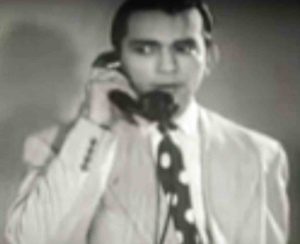‘Reflexive Cinema’ series fetes history of PH filmmaking

Pancho Magalona in “Kasaysayan ni Rudy Concepcion”
The works of prize-winning filmmaker Nick Deocampo on the early influences of Filipino movies were featured in the second session of the “Reflexive Cinema” series held at the Cultural Center of the Philippines (CCP) on June 10.
Deocampo attended the screenings of his 50-minute documentaries, “Cine: Spanish Influences on Early Cinema in the Philippines” and “Film: American Influences on Philippine Cinema,” announced programmer Teddy Co.
“It shows how filmmaking began in the Philippines,” explained Co, chair of the National Committee on Cinema (NCCinema). The first documentary covers the period between 1896 to 1912, while the second, from 1912 to 1941.
Screenings for the 60-title “Reflexive Cinema” series at the CCP will be held every second Saturday of the month—except in August, December and January—until September 2019. The series is part of the three-year celebration of the centennial anniversary of Philippine filmmaking.
Malayan Movies, the country’s first film company, owned by Jose Nepomuceno, was built in 1917. Nepomuceno made the first documentary in 1918 and the first full-length Filipino film, “Dalagang Bukid,” the year after.
Article continues after this advertisementTo be screened on July 8 is the
60-minute documentary by the late film historian Augustin Sotto titled “Philippine Cinema: 1912-1944,” which features interviews with some of the eminent names of prewar cinema, including actresses Atang dela Rama, Mary Walter, Mila del Sol; actor Leopoldo Salcedo; soundman William Smith; producer Luis F. Nolasco; filmmakers Manuel Silos, Lamberto Avellana and Manuel Conde.
“All of them are gone now, except for one—thus making this video an important document about Philippine film heritage,” Co said.
Also part of the series in July is Octavio Silos’ Sampaguita Pictures-produced “Kasaysayan ni Rudy Concepcion,” starring Pancho Magalona. Co explained that before Nora Aunor, Rudy Concepcion (portrayed by Magalona) was known as the “Idolong Kayumanggi” and was the biggest male movie star in the late ’30s, until a bout with peptic ulcer claimed his life at age 24.—MARINEL R. CRUZ